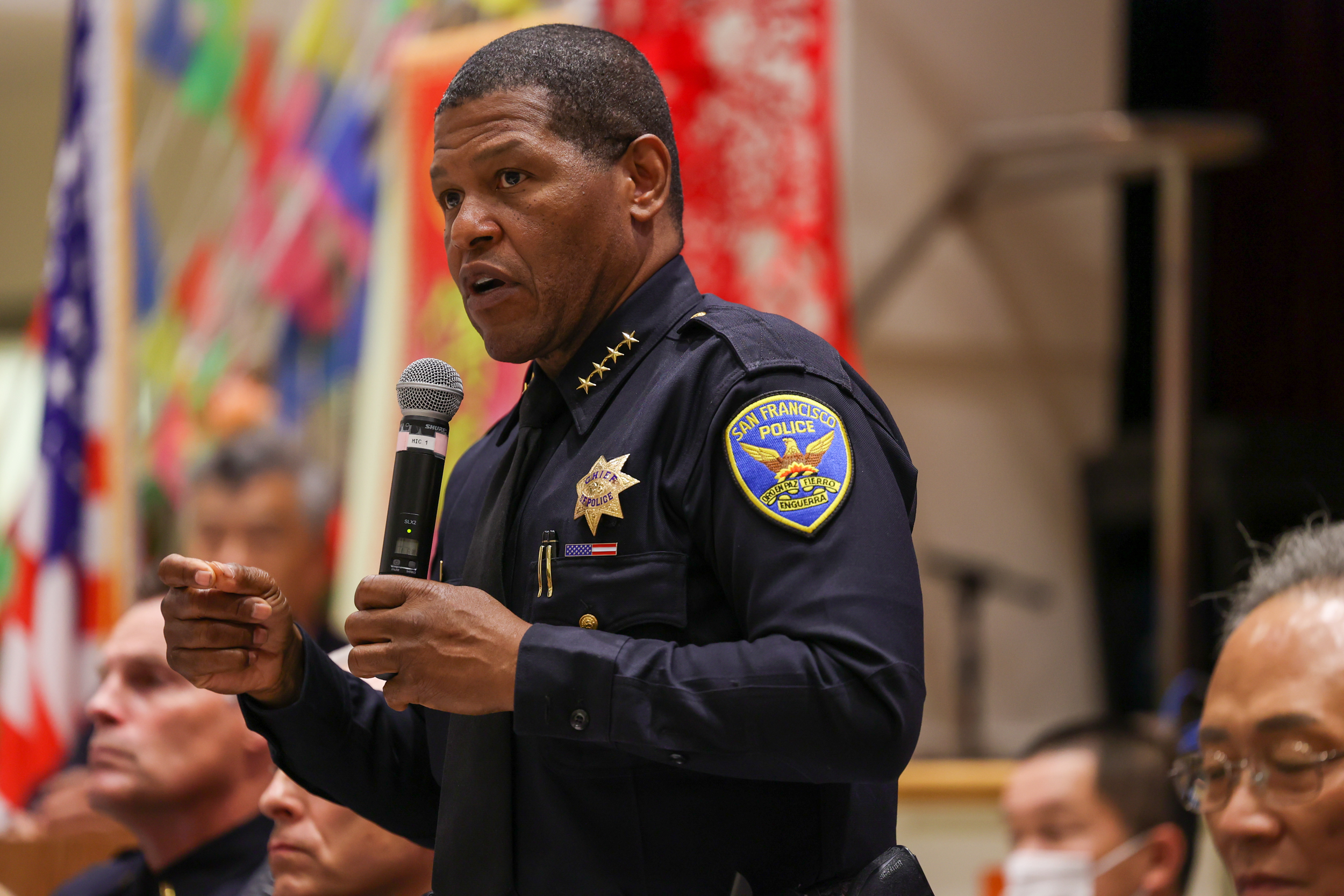San Francisco police Chief Bill Scott wants to review his department’s homicide rewards amid pressure from victims’ family members who called for change after a San Francisco Standard story highlighted numerous problems with the program.
Scott called for the hearing at Wednesday’s Police Commission, where a number of bereaved relatives of homicide victims demanded accountability for the reward fund, which The Standard found out hasn’t issued any bounties for nearly a decade.
“I am really down today, everyone, and I’m down because of this article saying the SFPD has paid zero rewards,” said Paulette Brown, whose son Aubrey Abrakasa was killed in 2006. “So what hope does that give me? I need answers. Is this reward no good?”
The issues around the fund center on the lack of payouts, which has raised questions about the effectiveness of money as a crime-solving tool. The Standard’s reporting also sparked concerns from the families of homicide victims over whether the reward process is too complicated and arbitrary.
Meanwhile, the police department doesn’t seem to track how much money it’s paid out or has in the bank and has violated local law that requires it to report that information to City Hall.
Despite the chief’s backing for a hearing and acknowledgement that there have been no payments over his tenure—indeed, the last one was in 2013—Scott said he still believes rewards can help solve cold cases.
“People don’t want their cases to be forgotten about,” Scott said. “I think we need to keep trying.”
A number of police commissioners, including Kevin Benedicto, also called for the hearing.
“I think there’s two issues with the rewards: How often are they being paid [and] are they being used effectively—I think 2013 was the last time?—and whether or not the standards are transparent and easy to access for the public so they can understand what is happening,” he said on Wednesday.
The last payout went to an anonymous tipster who got $250,000 for helping police solve the 2006 killings of Willie Allen. Before that payout, the department had made, on average, a reward payment a year since 1999. In all, the department has paid out $390,000 in 14 cases since 1999.
The department currently has $1.6 million in rewards on offer.
Despite the lack of tipsters and information, the city has a policy on the subject and has tried in the past to fix the process for paying unsolved homicide rewards—even if SFPD has failed to live up to them.
In 2016, Mayor London Breed led the passage of the San Francisco Homicide Reward Fund, which gave the police chief discretion over rewards and their payments. The chief is only required to get approval from the Board of Supervisors if the reward is more than $100,000 and his department must report annually about the fund.
But SFPD hasn’t ever reported to the city on those funds, and department officials say they don’t know why no tipsters have been paid since 2013.
SFPD spokesperson Robert Rueca, meanwhile, told The Standard that the department has no records of ever paying a reward. He also said the department has no records of how much money it has in the bank for rewards or how that money has been managed.
The date for the Police Commission hearing on the matter has yet to be set.
